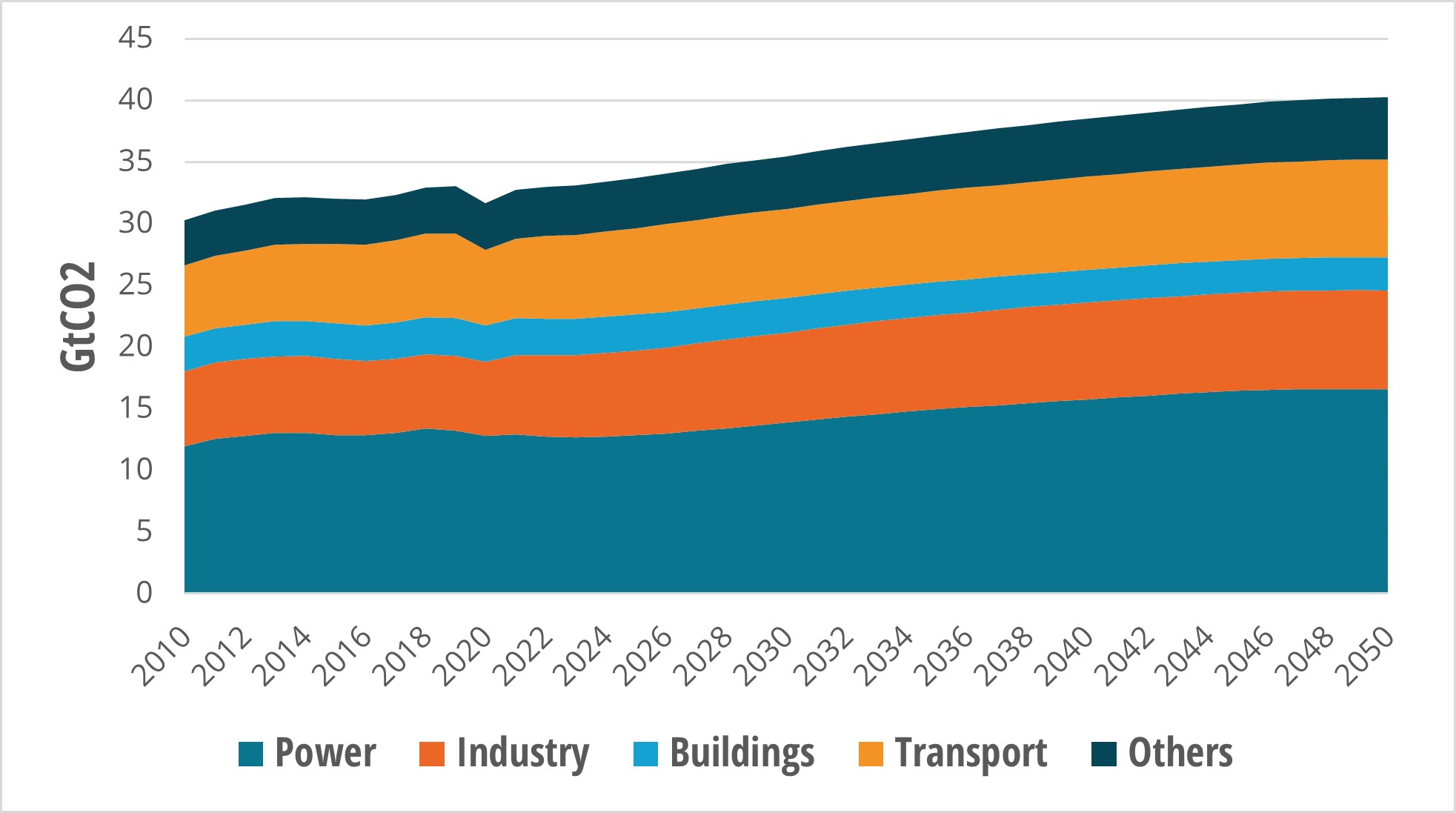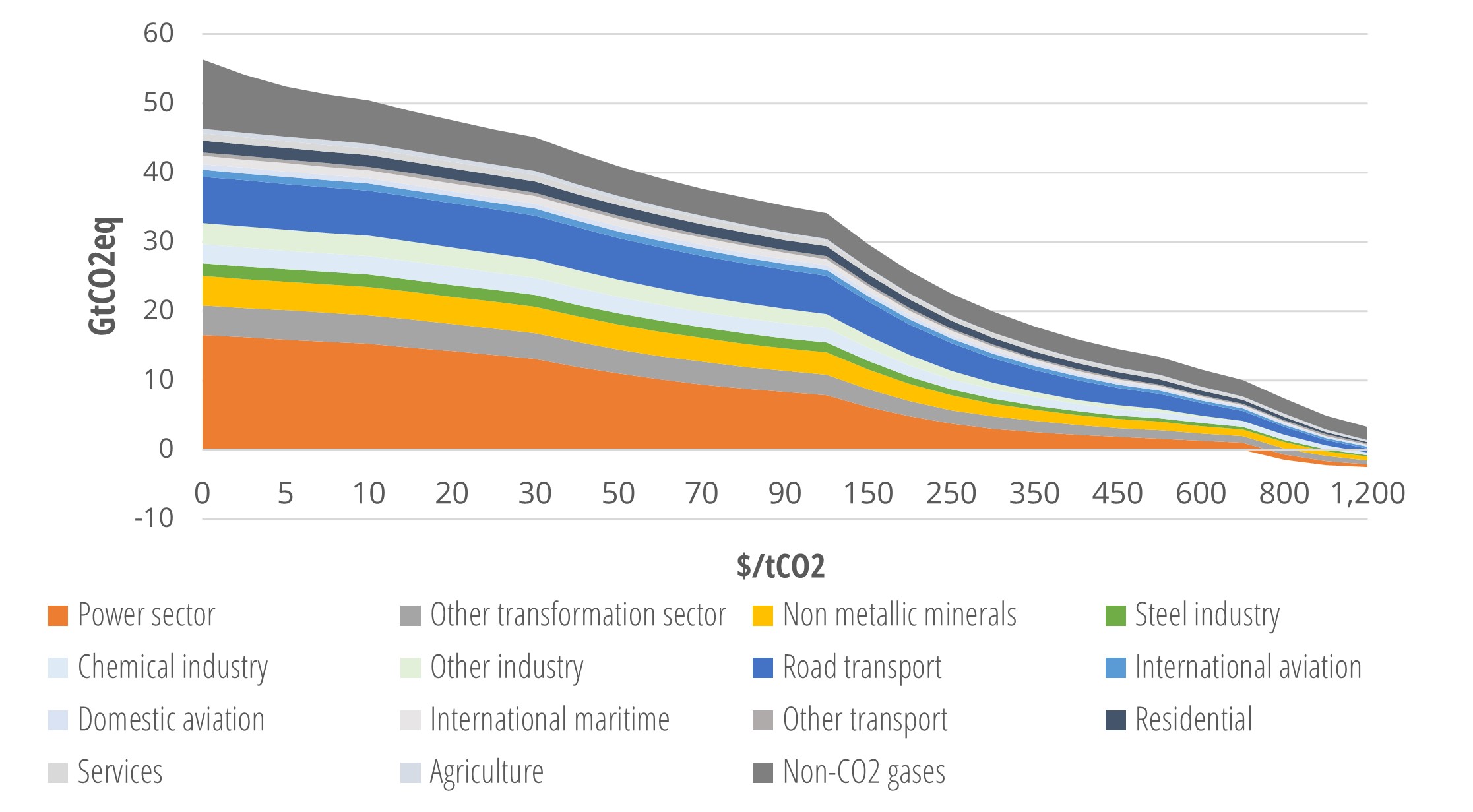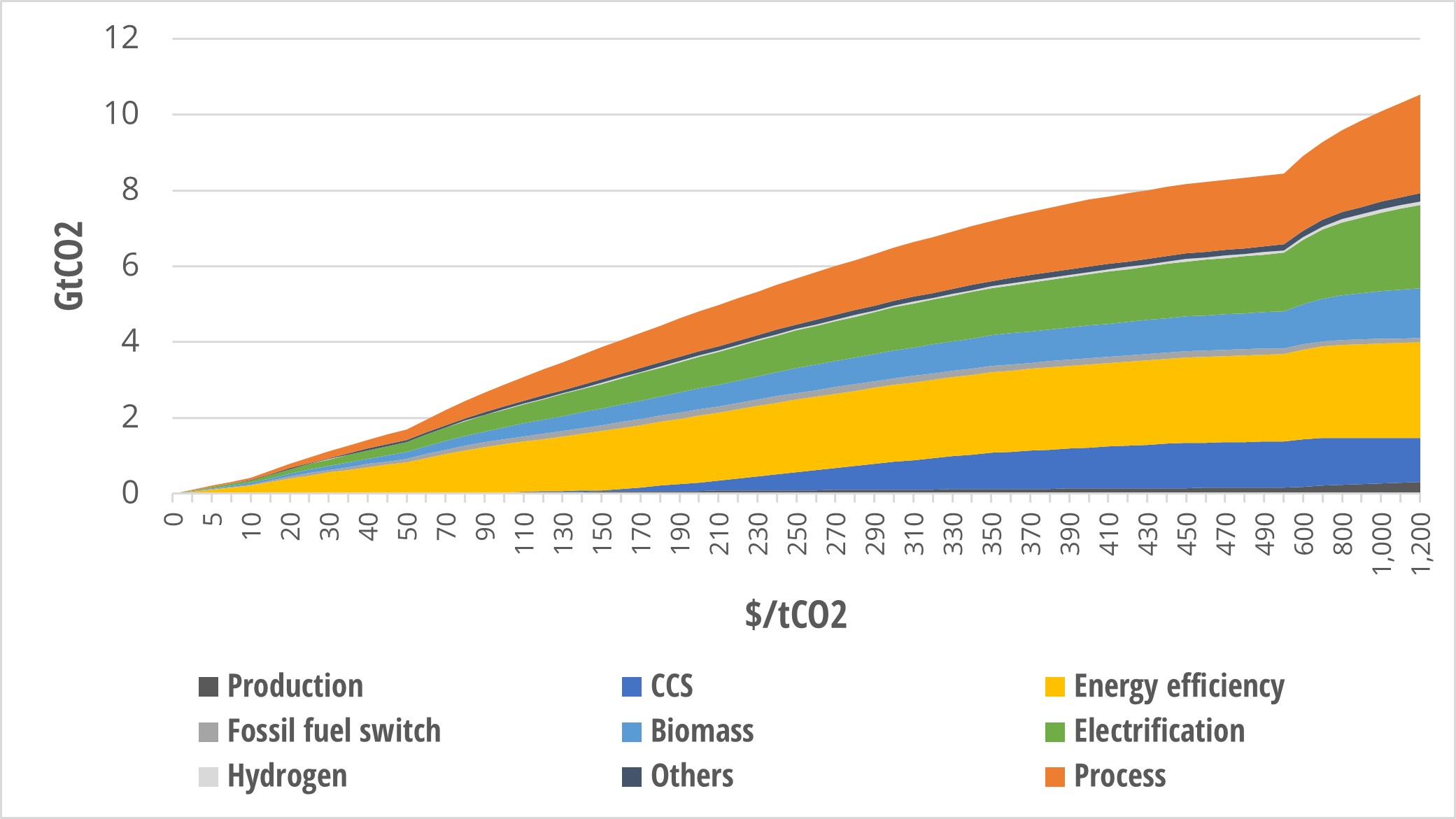Through recurring contracts since 2007, the UK’s Department for Energy Security and Net Zero (DESNZ) has confirmed its trust in Enerdata by commissioning our modelling experts to develop a bespoke business-as-usual scenario and derive Marginal Abatement Cost Curves (MACCs) at the global level.
This year, the horizon of the business-as-usual scenario is extended to 2060, and new model improvements will be used to refine the MACCs options in terms of behavioural changes, hydrogen & derivatives, and modelling of Direct Air Carbon Capture and Storage (DACCS).
19 April 2023
The UK’s Department for Energy Security and Net Zero (DESNZ) aims to evaluate the impacts of climate action and Nationally Determined Contributions (NDCs) under the Paris Agreement. For this purpose, they are using the Global Carbon Finance (GLOCAF) model, which takes as inputs comprehensive datasets on full prospective long-term energy and emissions balances, as well as Marginal Abatement Cost Curves (MACCs).
DESNZ has renewed its trust in Enerdata to provide a business-as-usual scenario up to 2050 to evaluate long-term energy and emissions forecasts under current policies. Moreover, DESNZ needs to assess the costs of greenhouse gas emission reduction measures in all economic sectors and for various timescales. The geographic coverage includes a broad range of countries and specific world regions.
To develop their customised business-as-usual scenario, DESNZ relies on our experts who leverage our cutting-edge tools for long-term energy systems modelling. First, we benchmark our own model, POLES-Enerdata, and EnerFuture scenarios, with long-term scenarios from international sources. Then, we build customised MACCs, to provide the emission reduction costs for each sector of each selected country/region. Finally, the AERO model is used to further break down these emission reductions into individual sectoral measures, for which long-term mitigation costs are also provided.
Enerdata has been cooperating with DESNZ since 2007 on the assessment of climate mitigation.
Global CO2 emissions by sector

Global GHG emissions per sector in the “early action” scenario in 2050

CO2 abatement by option in the industry in the “progressive policy” scenario in 2050

 Energy and Climate Databases
Energy and Climate Databases Market Analysis
Market Analysis